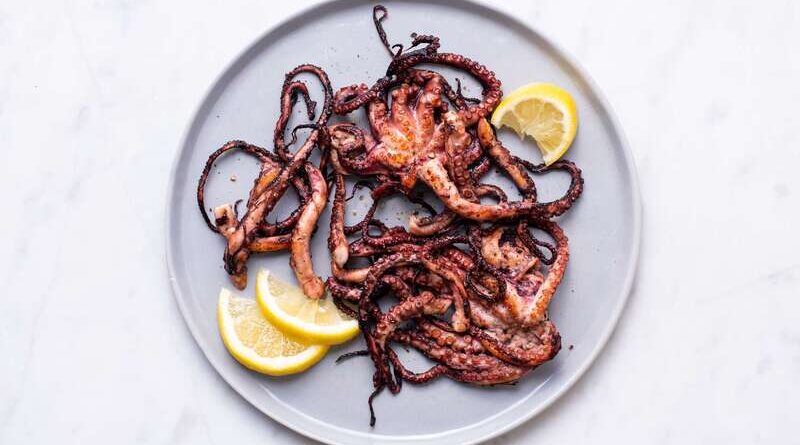Octopus Nutrition Facts: Unlocking the Secrets of Health Benefits
Discover the nutritional powerhouse of the ocean with “Octopus Nutrition Facts.” Discover the vast array of essential nutrients contained within this fascinating sea creature. From protein to vitamins and minerals, learn about octopus nutrition and its potential health benefits. Discover its culinary versatility and learn about sustainable sourcing techniques. Set out on a journey to discover the secrets of octopus nutrition and deepen your understanding of this incredible marine delicacy.
Octopus Nutrition Facts
Octopus is a nutritional powerhouse, with high levels of protein, omega-3 fatty acids, vitamins, and minerals. A 3-ounce serving contains approximately 25 grams of protein, which is essential for muscle repair and growth.
Octopus is high in heart-healthy omega-3 fatty acids, which help with cardiovascular health and brain function. It also contains high levels of vitamin B12, iron, zinc, and selenium, which are required for energy metabolism and immune function.
Octopus, with its low calorie and fat content, is a nutrient-dense protein source for those looking for a healthy and filling meal.
Health Benefits of Consuming Octopus
- Octopus has a plethora of health benefits due to its high nutrient content.
- Octopus is a protein powerhouse that also provides essential omega-3 fatty acids, which support muscle health, heart health, brain function, and immune function.
- Its culinary versatility allows for delicious and nutritious meals that can be prepared in a variety of ways.
- Incorporating octopus into your diet can help you feel better and live a more balanced and healthy lifestyle.
Culinary Uses and Recipes Featuring Octopus
Octopus, with its tender meat and delicate flavor, lends itself to a wide range of culinary dishes. Octopus can be the star of any dish, from a simple grill to a complex seafood stew. Grilled octopus with a squeeze of lemon makes a refreshing appetizer, or thinly sliced octopus can be mixed into a colorful salad for a light and nutritious meal.
For a hearty dinner, simmer octopus in a rich tomato-based sauce with garlic and herbs, then serve over al dente pasta. The possibilities are endless, so be creative and discover the delectable world of octopus cuisine!
Sustainability and Sourcing of Octopus
Octopus sourcing requires navigating complexities to ensure environmental responsibility and ethical practices. Sustainable fishing methods, such as selective harvesting and seasonal closures, help to protect octopus populations and marine ecosystems. Additionally, certification programs such as MSC and ASC assure sustainability and traceability.
Collaborating with local communities and encouraging responsible consumption enables stakeholders to protect octopus populations for future generations.
Potential Risks and Considerations
Octopus consumption comes with some potential risks and considerations to bear in mind:
Allergies:
People who are allergic to shellfish should avoid eating octopus.
Mercury Contamination:
While octopus typically contains lower levels of mercury, sensitive groups should limit consumption.
Sodium Content:
Some preparations may be high in sodium, posing a risk to people who have hypertension.
Foodborne Illness:
Proper cooking and handling are critical in preventing foodborne illnesses such as Vibrio infection.
Choking Hazard:
Chewiness can be a choking hazard, particularly for children and those with swallowing difficulties.
Environmental Impact:
Unsustainable fishing practices can harm marine ecosystems; therefore, choose sustainably sourced options to reduce environmental impact.
Conclusion
To summarize, octopus emerges as a nutritional powerhouse from the depths of the ocean, providing a plethora of essential nutrients such as protein, omega-3 fatty acids, vitamins, and minerals. Its versatile culinary applications make it an excellent addition to a variety of dishes, and sustainable sourcing practices ensure its availability for future generations.
However, potential risks include allergies, mercury contamination, sodium content, foodborne illness, and environmental impact. Octopus, with proper consideration and responsible consumption, can be enjoyed as a delicious and healthful delicacy that contributes to a balanced and sustainable diet.
